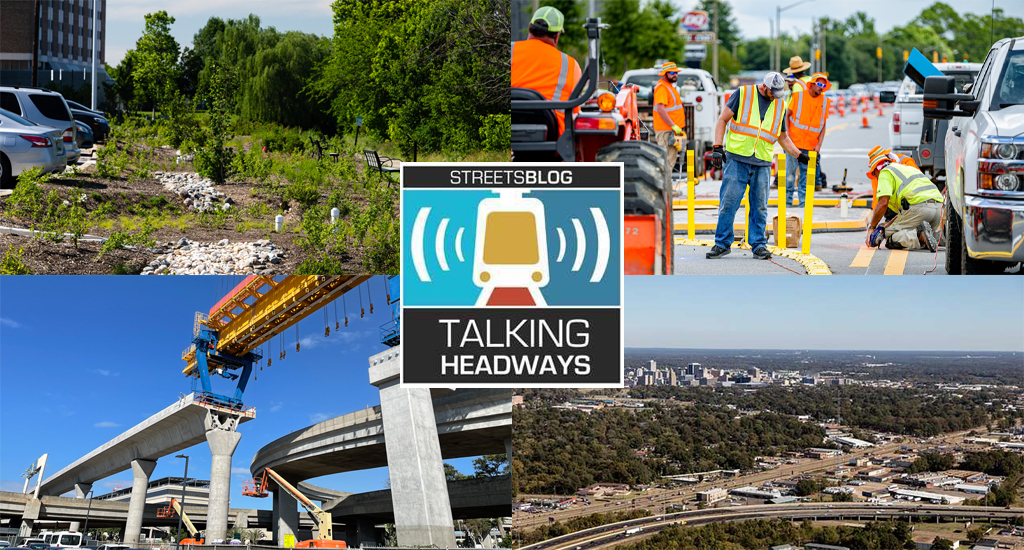This week we’re joined by Dr. Robert Blaine of the National League of Cities. We talk about their work helping smaller cities apply for federal infrastructure grants through a bootcamp program and chat about local grant writing capacity and what success looks like.
A partial transcript is below the audio player. Click here for a full, unedited read-out of our conversation.
Jeff Wood: Let’s talk about the local infrastructure hub and the funding bootcamps for smaller communities. I’m wondering what constitutes a smaller community, and what are some of the struggles that these smaller communities face in terms of trying to access funding for infrastructure or other items?
Dr. Robert Blaine: Sure. We’ve defined small and midsize communities as cities that are 150,000 residents and below. This is literally towns and villages that may have a thousand residents up to a nice, midsize city that may have 150,000 residents. When I was the chief administrative officer in Jackson, we had about 170,000 residents in the city and in the entire municipal government, I had two-and-a-half grant writers.
I had one in public safety, and most of the public safety grants were around policing and militarization of the police, which was the exact opposite direction of where we wanted to go. I had a half a grant writer in the Public Works Department where we had the most challenges and needed the most help.
You may have heard about Jackson, Mississippi and the news recently with the water crisis that we had there and some of the challenges that we had with infrastructure. But the real challenge for us was that after decades and decades of deferred maintenance, because there was no funding to be able to support that maintenance, when new opportunities came and new funding streams came, it was difficult for us to compete because many of these federal programs were programs that we had to apply for, and we needed federal grant writers in order to be able to apply for those funding.
We were in this kind of catch-22. We really, really needed the funds, but we didn’t have the competency, we didn’t have the capacity to be able to apply for it. I don’t think that Jackson is dissimilar from other cities or other midsize cities. As we thought about this as the National League of Cities, what we saw in this huge opportunity that we have with the funding that’s come out through the bipartisan infrastructure law, the American Rescue Plan, what’s happening now with the CHIPS Act and IRA, there’s trillions of dollars that are available. But what’s historically happened with these funding programs is that they’ve gone to the cities that have the big grant writing teams that can actually apply for the dollars.
What we said was that we wanted to be able to think about how we could help create a more equitable distribution of funds. To that end, we thought about this local infrastructure hub, of course, with our other partners, to really think about how we could support small to mid-size cities who have not historically been able to garner these funds in the same amounts that the big cities had. And how do we provide some resources so that some of these funds that are coming down can be more equitably distributed?
Jeff Wood: It’s interesting because, like you said, this has been such a problem for a long period of time. There’s been so much money sloshing around for decades — federal programs, probably even state programs that haven’t been funded even here in California. I mean, We’ve talked many times on the show about Oakland Transportation Department not being able to get the funds they need for paving or things from the state because they don’t have the grant writers available, or they didn’t have the people available to do one thing or another. So I’m wondering also — you’ve done a few of these bootcamps — I’m wondering the makeup of the folks that have come into the bootcamps, like, how big are their cities? What is their capacity currently, and what is the main barrier for them?
In Jackson you had some grant writers — which actually might be lucky that you had a few rather than none.
Dr. Robert Blaine: That’s right, that’s right. What we’ve seen is that we’ve had, you know, communities as small as a thousand up to, you know, 160,000 170,000, that have been in the program. For many of the really, really small communities, they just don’t have anybody on staff that does this full-time. Many times it’s a department director that might be taking on this responsibility. We even had a mayor in a city that was writing grants for her city. She was a new mayor that came in and she was like, "I don’t have anybody to write the grants, so I’m gonna write ’em myself."
I think that the exciting thing about what we’ve done is we’ve built this curriculum and the goal is that we’re teaching cities the process of how to complete a competitive application, and we’re trying to build all the resources that they need. So even if they don’t have someone who is a full-time grant writer, you could take a department director or someone in the city, or even a partner, even like a community-based organization that can be a partner that could add support to a city. And together you can create a competitive application.





